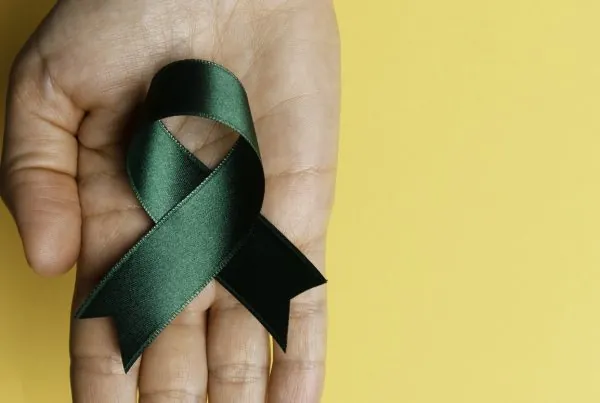Disruptive, impulse control and conduct disorders are a group of conditions diagnosed in children and teens, characterized by long-lasting and consistent destructive behavior across multiple situations and a disregard for others and the law. These conditions are understood to be like anxiety and depression.
Still, instead of directing these negative thoughts and destructive forces inward, those diagnosed with a disruptive behavior disorder or impulse control disorder direct them outward. Common conditions that fall under the umbrella of impulse control disorder and disruptive behavior disorders include:
-
- Pyromania
- Kleptomania
- Conduct Disorder (CD)
- Intermittent Explosive Disorder (IED)
- Oppositional Defiant Disorder (DDD)
While kleptomania and pyromania are among the rarer ones, affecting under one percent of children, the other disorders are more common. About 6 percent of children are estimated to have an oppositional defiant disorder or conduct disorder, and nearly 3 percent have an intermittent explosive disorder.
More than just another name for unruly behavior, these disorders are only diagnosed in children who display symptoms of severe aggression, destruction of property, constant rule-breaking despite certain consequences, and highly impulsive behavior, among other characteristics.
Teen Intermittent Explosive Disorder (IED)
Teen intermittent explosive disorder is characterized by repeated and sudden physical and verbal violence and extreme anger. While children and even teens are not particularly known for being in control of their emotions, there is a point at which the constant lack of control can cause concern.
IED can be identified by these severe and recurring temper explosions more than just a simple anger management problem. If your teen is likely to throw temper tantrums and lose their temper at the slightest push, repeatedly flying off the handle with little to no warning regardless of the setting or circumstances, then they might be struggling with IED.
They may be separated by weeks of nonaggression, but if they have been an issue for a year or longer and often happen with no discernable reason, they may be a sign that your teen needs treatment. These episodes can manifest in different ways and usually consist of either:
-
- Fights
- Tirades
- Temper tantrums
- Property damage
- Extreme threats against people and/or animals
Teens with the intermittent explosive disorder usually feel relaxed or relieved after an episode has ended. They may regularly express regret or remorse yet fail to control their temper.
Teen Oppositional Defiant Disorder (ODD)
Oppositional behavior is yet another trademark of the average teen. Children and teens may intentionally defy orders and go against the wishes of those around them. The trope of the rebelling teenager is universally understood because, for many of us, a big part of becoming independent is figuring out what we do not like and want.
But normal oppositional behavior has its limits, and teens either know where to draw the line or learn it quickly. When a child or teen repeatedly shows anger, disdain, and even abject hatred towards any authority figure (including their family), they may have oppositional defiant disorder.
ODD is characterized by oppositional behavior that is consistently impairing a teen’s social life and relationships at home and school, rarely developing late into puberty, and the first signs are usually seen in preschool. Its latest onset is during the early teen years. Some common signs of ODD include (but is not limited to):
-
- Consistently irritable mood.
- Argues often with authority figures.
- Blames others for their mistakes and failures.
- Refuses to follow or deliberately ignores requests and rules.
The causes behind oppositional defiant disorder can differ from teen to teen, though both temperament and parenting play significant roles. When the bridge between a teen and their parents has been burnt, professional help might be the best next answer.
Teen Conduct Disorder (CD)
Where violent episodes characterize the IED, and ODD is usually directed solely at authority figures, a CD is characterized by behavior that is generally callous and inconsiderate, to the point of completely ignoring others’ needs and rights and causing direct and indirect harm to other people. Conduct disorders can include theft and property destruction, hurting or abusing animals, and cruelty. Other common behaviors include (but is not limited to):
-
- Relentless bullying.
- Physical abuse towards a friend or partner.
- Lying to no real benefit (for the fun of lying).
- Stealing items of no value (for the fun of stealing).
- Deliberately causing harm or annoyance for self-gratification.
- Coercing people with threats of violence or even death, including wielding a weapon.
Another important characteristic is that conduct disorders are not learned behavior, i.e., they are not something a teen picked up from others and decided was normal. Teens who grew up in abusive households may be more likely to develop a conduct disorder. Still, an important distinction to make is that a teen with a conduct disorder understands that they are hurting others or doing harm but takes pleasure in it. Children and teens with conduct disorders may develop and be diagnosed with antisocial personality disorder.
Kleptomania and Pyromania
Kleptomania (stealing things) and pyromania (arson) are two classic examples of an impulse control disorder and are sometimes associated with obsessive-compulsive disorder (OCD). These conditions are like behavioral addictions, characterized by consistent dangerous behaviors that a teen cannot fully control or refrain from. While some teens steal and other teens fuel fires, the inability to stop oneself from dangerous impulses to cope with anxieties and struggles may hint at an impulse control disorder.
Co-Occurring Conditions
These conditions are often related to or can co-occur alongside other teen mental health issues, including:
When to Seek Professional Help
The main difference between disordered behavior and unwanted or unsavory behavior is the inability to change without intervention, the severity of the behavior, and how it affects others. It is entirely normal for teens to misbehave and push boundaries. Sometimes, they go too far and make mistakes they learn from. Some teens take longer to learn certain lessons than others.
But when a teen repeatedly and remorselessly hurts others, or shows remorse yet fails to control themselves, or otherwise becomes a danger to themselves or those around them, it is time to seek professional advice. Disruptive, impulse control and conduct disorders can be severe and damaging to teens and their loved ones. If you suspect that your teen might not be able to improve their behavior on their own, it may be time to get help.








